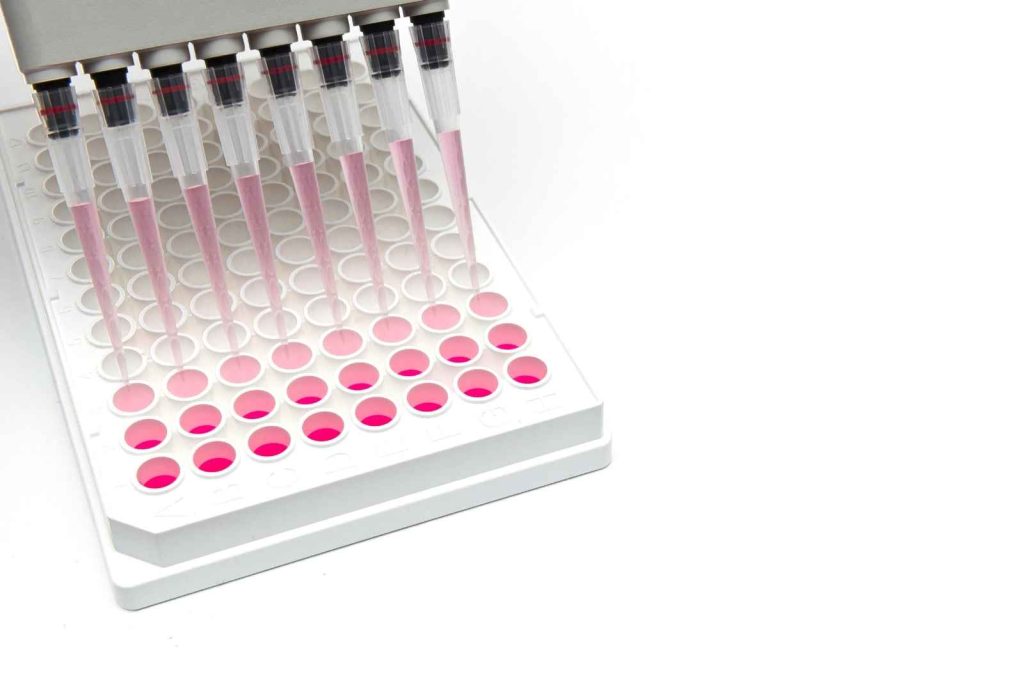
?What Are Cell-Based Tests
Cell-based tests, a cornerstone of modern biotechnology research, are experimental procedures that utilize living cells to evaluate the biological activity of compounds, such as pharmaceuticals, chemicals, and biological products. These tests offer a more dynamic and physiologically relevant environment for studying complex biological processes and disease mechanisms compared to traditional non-living assays. By employing living cells, researchers can closely mimic the conditions within a living organism, allowing for the observation of cellular responses, drug interactions, and genetic changes in real-time. This approach provides invaluable insights into cellular behavior, including growth, differentiation, and apoptosis, under various conditions. Cell-based tests are instrumental in advancing our understanding of cellular physiology, pharmacology, and toxicology, serving as a bridge between in vitro studies and in vivo animal models. Their versatility and relevance make them indispensable tools in the quest for novel therapeutics, enhancing the efficiency and efficacy of biotechnological research and development.
?Why Are Cell-Based Tests Important in Biotechnology Research
Cell-based tests are pivotal in biotechnology research for several compelling reasons. Firstly, they offer a closer approximation to the complex interactions occurring in living organisms, providing insights that are more relevant to human biology than those obtained from traditional biochemical assays. This relevance is crucial in the early stages of drug development and genetic research, where understanding the effect of substances on cellular processes can lead to more effective and safer treatments.
Secondly, cell-based assays play a vital role in reducing the reliance on animal testing. By providing a more accurate depiction of how compounds will interact within the human body, these tests can potentially lower the number of animals needed for research, aligning with ethical considerations and regulatory demands for more humane research methodologies.
Moreover, the versatility of cell-based tests allows for the exploration of a wide range of biological questions, from the basic mechanisms of cell function and interaction to the development of resistance to therapies in complex diseases like cancer. This versatility accelerates the pace of discovery and innovation in biotechnology, making cell-based tests indispensable tools in the quest to address some of the most pressing health challenges of our time.
?How Do Cell-Based Tests Enhance Drug Discovery
Cell-based tests significantly enhance drug discovery by enabling high-throughput screening (HTS) of vast libraries of compounds to identify potential therapeutics. This efficiency is paramount in the early stages of drug development, where identifying promising candidates quickly can drastically reduce time and costs. Through the use of living cells, researchers can observe the direct effects of compounds on cellular activity, such as proliferation, toxicity, and specific molecular pathway interactions. This immediate feedback allows for the rapid refinement of drug candidates, ensuring that only the most effective and safest compounds progress to further testing. Moreover, cell-based assays can mimic disease states in cells, providing a platform to screen drugs under conditions that closely resemble the target pathology. This specificity not only improves the relevance of the screening results but also enhances the likelihood of discovering novel treatments for complex diseases, making cell-based tests a critical asset in the drug discovery process.
?What Role Do Cell-Based Tests Play in Disease Modeling
Cell-based tests are instrumental in disease modeling, offering a dynamic platform to replicate and study the intricacies of human diseases in vitro. By manipulating cells to exhibit specific disease phenotypes, researchers can investigate the molecular and cellular mechanisms underlying various conditions. This approach enables the simulation of diseases ranging from genetic disorders to infectious diseases and cancer within a controlled laboratory environment. Disease models created through cell-based tests provide a valuable tool for elucidating the pathophysiology of diseases, identifying potential biomarkers for early diagnosis, and exploring the efficacy and safety of new therapeutics. Furthermore, these models facilitate personalized medicine by allowing the testing of drug responses in cells derived from individual patients. This personalized approach can predict treatment outcomes more accurately, paving the way for customized therapies. Consequently, cell-based tests play a pivotal role in advancing our understanding of diseases and enhancing the development of targeted treatments.
click here for more info: databiotech.co.il